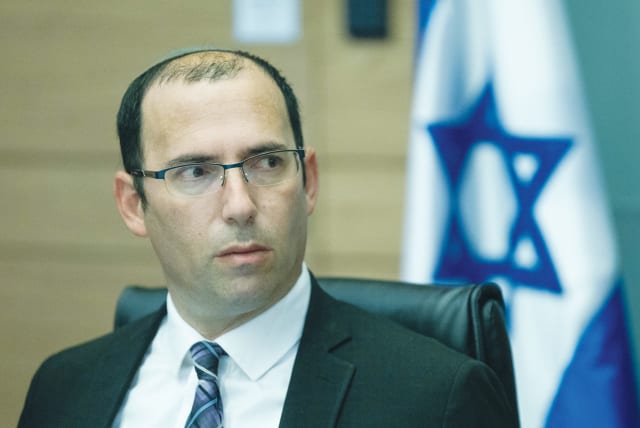Rothman: Open gov't inquiry into 'NSO scandal' police wiretapping

Gottlieb said, "No one can pass the audit on themselves, and we should think about examining things with a governmental or state investigative committee."
A government inquiry should be opened into the "NSO scandal" police wiretapping Religious Zionist Party MK Simcha Rothman said at a Constitution, Law and Justice Committee session on Monday.
The committee held one confidential and one open hearing on a 2021 police report into law enforcement espionage, which found that the judiciary and State Attorney’s Office wasn't aware of the NSO Pegasus program's capabilities to covertly invade privacy.
The malware had been used from 2015-2021 to infect between 1,086-1,800 phones, and information beyond what was warranted was extracted. During the session, it had been discussed how the program didn't just allow the monitoring of calls, but the illegal harvesting of notes, contacts, applications and past correspondence.
Likud MK Tali Gottlieb noted that it was not possible that the police, which purchased the program, didn't know about its capabilities.
Systematic failure at hand

There had been a systemic failure of supervisory bodies to oversee the management of the programs and permissions to utilize it, said Rothman.
Committee chairman Rothman said that the issue of supervising wiretapping was "like a cat party guarding the cream."
The Knesset acts as a supervisory body to enforce that proper conduct of the police, said Rothman, and if there are failures and the wrong person is wiretapped, they expected the judiciary to admit that it was negligent in its duty and the approval for the warrant should not have been given. Judges would be sued for if they didn't have immunity, he said. Rothman said that the Knesset was also at fault since it didn't know what the police or judiciary knew.
Likud MK Moshe Saada, formerly deputy commander of the Police Internal Investigation Unit (Machash), said that the problem with the supervision teams lay with former attorney-general Avichai Mandelblit, who would have been in charge of the State Attorney's Office and consequently also police internal affairs.
"The body that is supposed to investigate is Machash, and if there are findings of a suspected criminal offense, they go to a criminal investigation," said Saada. "In this case, the attorney-general used his authority and let the Attorney-General's Office investigate themselves."
Yesh Atid MK Yoav Seglovich contended that Saada was falsely attributing malicious intent to public servants.
Gottlieb said that "No one can pass the audit on themselves, and we should think about examining things with a governmental or state investigative committee."
Israel Democracy Institute senior fellow Tehilla Shwartz Altshuler said that Israel needed to introduce a new digital surveillance law. The current system did not take into account technological developments.
Jerusalem Post Store
`; document.getElementById("linkPremium").innerHTML = cont; var divWithLink = document.getElementById("premium-link"); if (divWithLink !== null && divWithLink !== 'undefined') { divWithLink.style.border = "solid 1px #cb0f3e"; divWithLink.style.textAlign = "center"; divWithLink.style.marginBottom = "15px"; divWithLink.style.marginTop = "15px"; divWithLink.style.width = "100%"; divWithLink.style.backgroundColor = "#122952"; divWithLink.style.color = "#ffffff"; divWithLink.style.lineHeight = "1.5"; } } (function (v, i) { });
